Funny thing, I actually fall asleep easier when the light are on. As soon as I get up to tur them off, I can't fall asleep anymore
What Can Happen to You If You Sleep With the Lights On
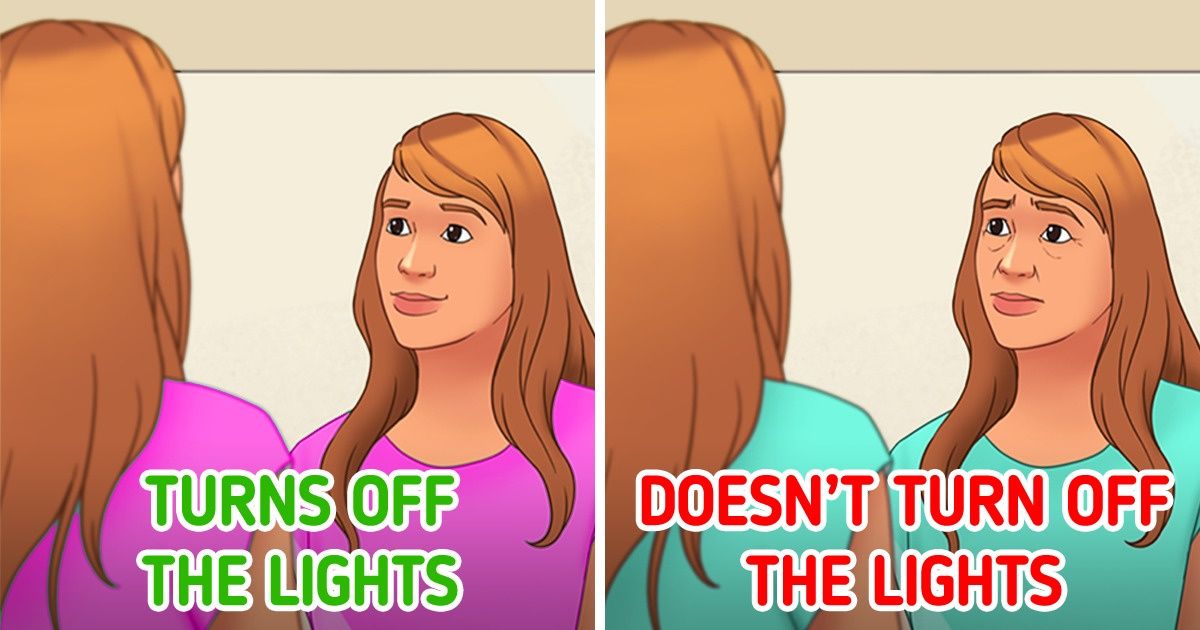
We can all probably remember a time when we’d fall asleep with the lights on when we were children. It was the only way to protect ourselves from the closet monsters. What’s more, some adults might prefer to leave the lights on as well, and not because of darkness. But it turns out that the real danger has been hiding in the lights all this time.
Bright Side unveils the truth of this seemingly harmless habit.
1. It can harm your reproductive health.
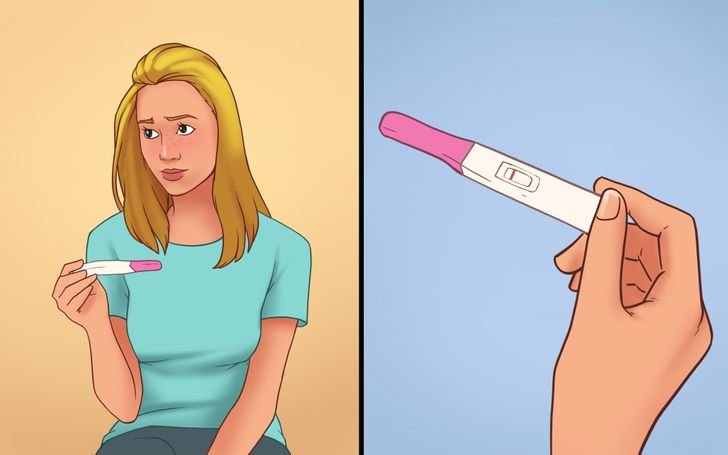
One study found that exposure to artificial light at night can increase the risk of infertility. The experiment was conducted on female mice. The mice that slept with the light on at night were more likely to be infertile. It’s also believed that the circadian rhythms (the body’s internal clock) influence the timing of the reproductive process in women.
Another study monitored nurses who worked night shifts and the effects of night-time light exposure. Turns out most nurses complained that their menstrual cycles were disrupted.
2. It can cause heart-related problems.
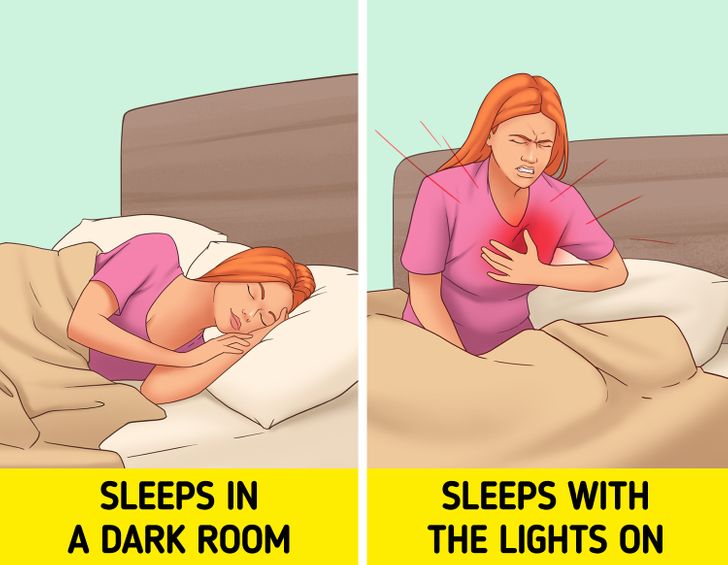
Not only does melatonin lower the body temperature but also blood pressure. If you’re exposed to light at nighttime, your production of melatonin is suppressed. As a result, your blood pressure increases. Regular fluctuations, in turn, can increase the risk of heart disease and stroke.
3. You might gain weight.
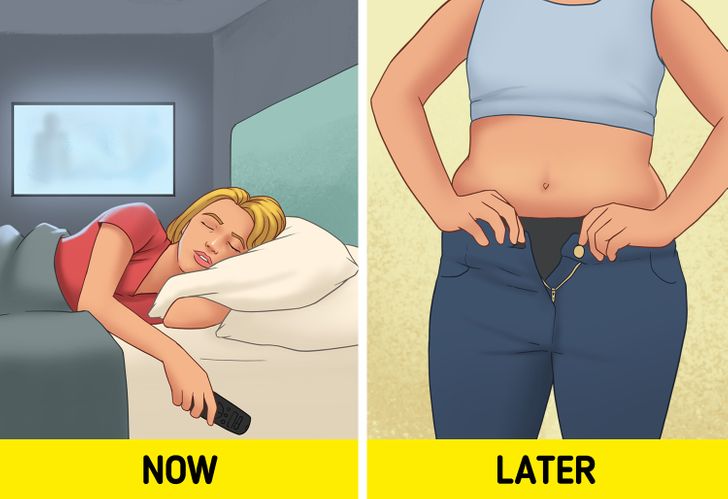
Excess of artificial light at night can be the cause of a slowed metabolism. Besides, the disruption of sleep and circadian rhythms might contribute to obesity. A study that monitored over 43,000 women revealed that those who slept with the TV on noticed weight gain. The change happened regardless of their sleep quality or duration.
4. It might cause hormonal changes.
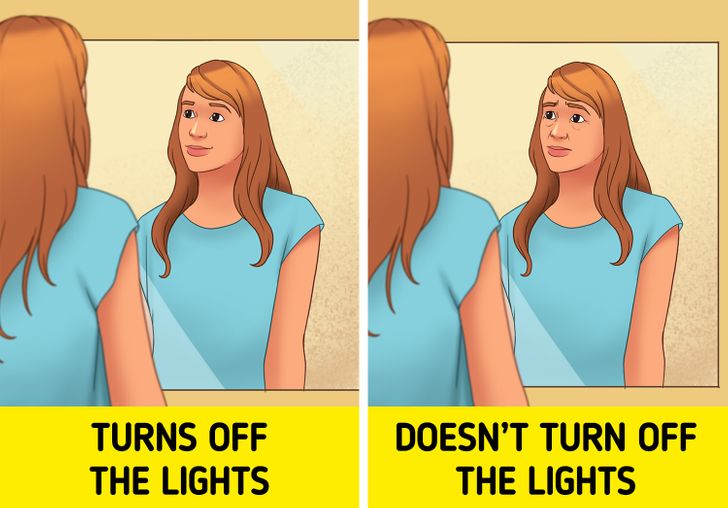
Even a single light source can alter the hormonal balance. Light from smartphones, TVs, or computers contributes to melatonin deficiency. In addition, other biological processes are disrupted. Most of the time, it is melatonin that suffers first. Disrupted sleep increases aging hormones and reduces the anti-aging ones.
5. You might suffer from depression.
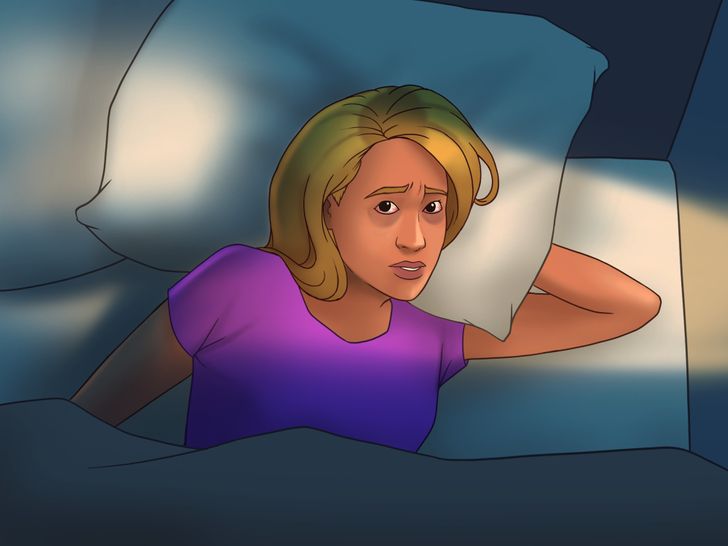
A study found that exposure to light at night increases the risk of depression. Alternatively, the disruption of the circadian rhythm is likely to worsen already existing depression symptoms. Interestingly, red light has fewer detrimental effects because we’re less sensitive to red wavelengths. In some cases, it’s even used to treat the blues.
Do you sleep with the lights on? If not, how do you darken your room?
Subscribe to our podcast on Spotify or Apple podcasts to enjoy our best stories and give a real treat to your ears.
Comments
I can't understand how someone can sleep with the light on
Related Reads
16+ Comics That Prove Childhood Memories Are Pure Gold
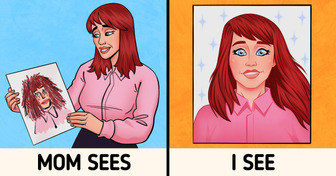
13 Moments That Show Fatherhood Is the Hardest Job With the Biggest Rewards
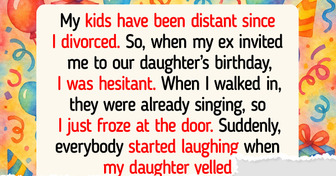
I Won’t Help My Jealous Sister Anymore After She Isolated Me From Her Family
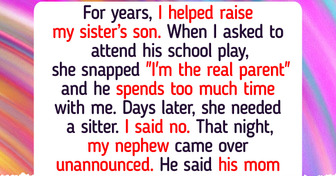
I Refuse to Spend My College Fund on My Stepsister’s Wedding, She’s Not Even My Real Sister

I Cut Off My Adult Son—I’m His Father, Not His Never-Ending Wallet
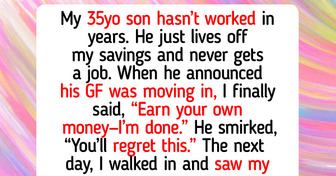
I Kicked Out My Sister and Her Son After His Behavior Crossed a Line
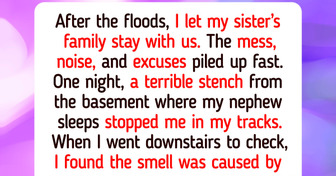
15 Stories That Inspire Us to Stay Kind Even When Life Feels Unfair
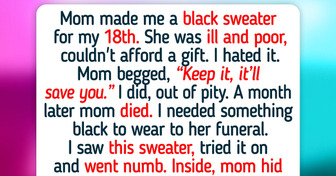
My Parents Wanted a ‘Family Vacation’ on My Budget—I Made One Move They Didn’t Expect

My Neighbor Refused to Help My Autistic Son, She Wasn’t Ready for My Revenge
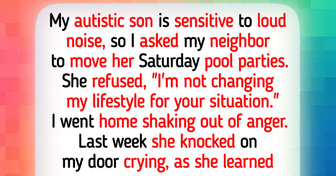
My Stepmother Inherited Everything and Kicked Us Out—But She Didn’t Count on One Thing
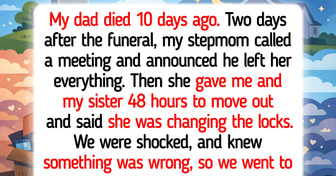
My Parents Refused to Fund My Education, So I Turned the Tables on Them

12 Moments That Teach Us to Choose Kindness Even When Life Turns Unfair
